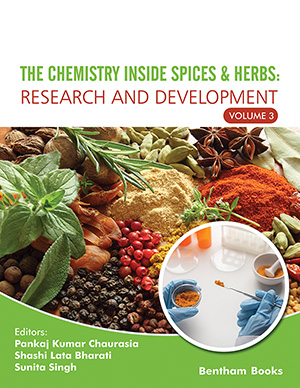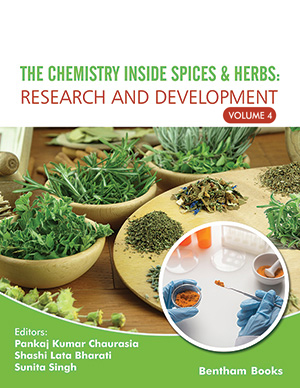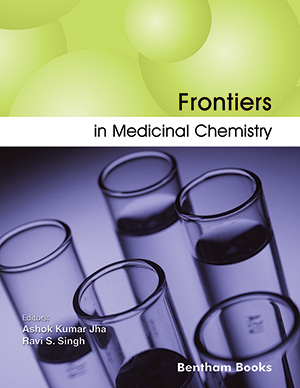Abstract
PCSK9 is a strongly expressed protein in the liver and brain that binds to the LDLR and regulates cholesterol in the liver effectively. Other receptors with which it interacts include VLDLR, LRP1, ApoER2, and OLR1. PCSK9 gain-of-function results in lysosomal degradation of these receptors, which may result in hyperlipidemia. PCSK9 deficiency results in a lower amount of cholesterol, which reduces cholesterol's accessibility to cancer cells. PCSK9 regulates several proteins and signaling pathways in cancer, including JNK, NF-κВ, and the mitochondrial-mediated apoptotic pathway. In the liver, breast, lungs, and colon tissue, PCSK9 initiates and facilitates cancer development, while in prostate cancer cells, it induces apoptosis. PCSK9 has a significant impact on brain cancer, promoting cancer cell survival by manipulating the mitochondrial apoptotic pathway and exhibiting apoptotic activity in neurons by influencing the NF-κВ, JNK, and caspase-dependent pathways. The PCSK9 impact in cancer at different organs is explored in this study, as well as the targeted signaling mechanisms involved in cancer growth. As a result, these signaling mechanisms may be aimed for the development and exploration of anti-cancer drugs in the immediate future.
Keywords: PCSK9, cancer, LDLR, JNK, NF-κВ, mitochondrial-mediated apoptotic pathway.
[http://dx.doi.org/10.1093/cvr/cvz313] [PMID: 31746997]
[http://dx.doi.org/10.17554/j.issn.2309-6861.2015.02.97]
[http://dx.doi.org/10.1194/jlr.R026658] [PMID: 22811413]
[http://dx.doi.org/10.1016/j.pathol.2018.10.012] [PMID: 30522786]
[http://dx.doi.org/10.1016/j.atherosclerosis.2016.02.018] [PMID: 26987067]
[http://dx.doi.org/10.1593/neo.121252] [PMID: 23308045]
[http://dx.doi.org/10.1074/jbc.M116.717736] [PMID: 27284008]
[http://dx.doi.org/10.1016/j.acvd.2013.10.007] [PMID: 24373748]
[http://dx.doi.org/10.1038/s41574-018-0110-5] [PMID: 30367179]
[http://dx.doi.org/10.1007/s13167-017-0106-6] [PMID: 29209441]
[http://dx.doi.org/10.1146/annurev-pharmtox-010716-104944] [PMID: 27575716]
[http://dx.doi.org/10.1186/s40170-018-0187-2] [PMID: 30386595]
[http://dx.doi.org/10.1016/j.jacl.2016.07.004] [PMID: 27678423]
[http://dx.doi.org/10.1007/s11789-017-0085-0] [PMID: 28176216]
[http://dx.doi.org/10.1007/s00795-013-0042-z] [PMID: 23549978]
[http://dx.doi.org/10.4172/2167-0889.1000183]
[http://dx.doi.org/10.1186/s12876-015-0371-6] [PMID: 26674961]
[http://dx.doi.org/10.1080/07853890.2016.1188328] [PMID: 27222915]
[http://dx.doi.org/10.3390/ijms21072430] [PMID: 32244519]
[http://dx.doi.org/10.1097/MOL.0b013e32834622b5] [PMID: 21494143]
[http://dx.doi.org/10.1016/j.jacl.2016.05.004] [PMID: 27578139]
[PMID: 26320603]
[http://dx.doi.org/10.1158/0008-5472.CAN-15-2613] [PMID: 27197250]
[http://dx.doi.org/10.1016/j.atherosclerosis.2014.12.017] [PMID: 25544176]
[http://dx.doi.org/10.1161/ATVBAHA.115.306032] [PMID: 26494228]
[http://dx.doi.org/10.1186/s13046-017-0490-8] [PMID: 28100270]
[http://dx.doi.org/10.1373/clinchem.2014.225946] [PMID: 25248569]
[http://dx.doi.org/10.1177/1074248414539562] [PMID: 24938457]
[http://dx.doi.org/10.1371/journal.pone.0210373]
[http://dx.doi.org/10.1371/journal.pone.0181540] [PMID: 28727814]
[http://dx.doi.org/10.1177/1060028018771670] [PMID: 29667842]
[http://dx.doi.org/10.1016/j.repce.2019.07.004] [PMID: 31324407]
[http://dx.doi.org/10.1007/s40256-015-0150-3] [PMID: 26596726]
[http://dx.doi.org/10.2174/13816128113199990313] [PMID: 23317404]
[http://dx.doi.org/10.1371/journal.pone.0055752] [PMID: 23409034]
[http://dx.doi.org/10.1016/j.biochi.2018.05.014] [PMID: 29857182]
[http://dx.doi.org/10.1016/S1040-8428(01)00140-8] [PMID: 11682321]
[http://dx.doi.org/10.3892/etm.2017.4218] [PMID: 28565798]
[http://dx.doi.org/10.1007/s00262-019-02367-z] [PMID: 31327024]
[http://dx.doi.org/10.1017/S000711451500183X] [PMID: 26173770]
[http://dx.doi.org/10.1056/NEJM199207303270505] [PMID: 1620171]
[http://dx.doi.org/10.1016/j.mce.2017.09.021] [PMID: 28919300]
[http://dx.doi.org/10.3390/ijms21041356] [PMID: 32079340]
[http://dx.doi.org/10.1016/j.taap.2019.03.018] [PMID: 30914377]
[http://dx.doi.org/10.1097/MOL.0000000000000114] [PMID: 25110901]
[http://dx.doi.org/10.1194/jlr.M041129] [PMID: 24103783]
[http://dx.doi.org/10.1007/s10549-009-0594-8] [PMID: 19851860]
[http://dx.doi.org/10.1038/s41467-018-06467-9] [PMID: 30262900]
[http://dx.doi.org/10.1016/j.coph.2012.07.009] [PMID: 22867847]
[http://dx.doi.org/10.3390/jcm8060853] [PMID: 31208017]
[http://dx.doi.org/10.3389/fphar.2013.00119] [PMID: 24093019]
[PMID: 30906624]
[http://dx.doi.org/10.5114/aoms.2019.84734] [PMID: 31110521]
[PMID: 18217529]
[http://dx.doi.org/10.1111/j.1464-410X.2010.09334.x] [PMID: 20346033]
[http://dx.doi.org/10.1097/01.mco.0000232896.66791.62] [PMID: 16778565]
[http://dx.doi.org/10.1093/carcin/bgx058] [PMID: 28595267]
[http://dx.doi.org/10.1016/j.jsps.2013.01.003] [PMID: 24493968]
[http://dx.doi.org/10.1593/neo.121368] [PMID: 23226097]
[http://dx.doi.org/10.1194/jlr.R800091-JLR200] [PMID: 19020338]
[http://dx.doi.org/10.2147/OTT.S129413] [PMID: 28442922]
[http://dx.doi.org/10.1038/nature05384] [PMID: 17122771]
[http://dx.doi.org/10.1097/MOL.0000000000000295] [PMID: 27031271]
[http://dx.doi.org/10.1158/1055-9965.EPI-07-0502] [PMID: 18006936]
[http://dx.doi.org/10.5114/aoms.2019.84732] [PMID: 31110520]
[http://dx.doi.org/10.18632/oncotarget.12702] [PMID: 27756892]
[http://dx.doi.org/10.1194/jlr.M014118] [PMID: 21518694]
[http://dx.doi.org/10.1002/cyto.a.20327] [PMID: 16967493]
[http://dx.doi.org/10.1007/s00018-012-0977-6] [PMID: 22481440]
[http://dx.doi.org/10.3233/JAD-160411] [PMID: 27662294]
[http://dx.doi.org/10.3892/ijmm.2018.3797] [PMID: 30066942]
[http://dx.doi.org/10.1194/jlr.M006635] [PMID: 20453200]
[http://dx.doi.org/10.3389/fnagi.2019.00120] [PMID: 31178716]
[http://dx.doi.org/10.1111/j.1471-4159.2004.03007.x] [PMID: 15773914]
[http://dx.doi.org/10.3233/JAD-161136] [PMID: 28304296]
[PMID: 26045785]
[http://dx.doi.org/10.3892/br.2013.213] [PMID: 24649090]
[http://dx.doi.org/10.3892/mmr.2016.6055] [PMID: 28000893]
[http://dx.doi.org/10.3389/fnins.2020.00609] [PMID: 32595449]






























